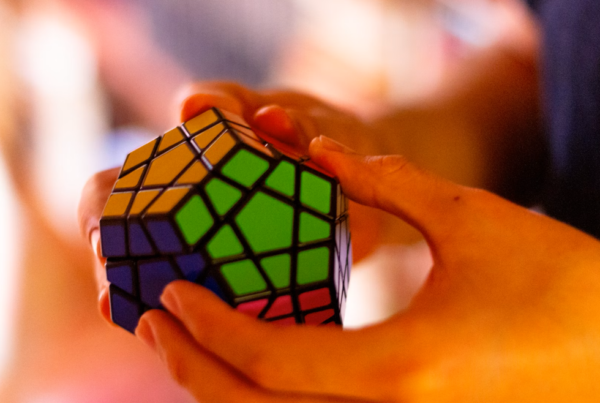

Humans can’t be trusted with data. Especially when the stakes are high, human beings have difficulty keeping their heads cool and their thinking straight. The Covid crisis has forcefully illustrated that, as it provided lively illustrations of confirmation bias (“the fact that the virus came from a Horseshoe bat proves it escaped from the Wuhan lab”), base rate neglect (“how can the vaccine be effective if a sizeable proportion of hospital uptakes is fully vaccinated?”), prevention paradoxes (“the horrific predictions of the epidemiologists never materialized, so lockdowns were unnecessary”), and many other errors of reasoning that are characteristic of our species.
The first person to clearly recognize this problem with human cognition was Francis Bacon (1561-1626). Bacon identified several cognitive biases that compromise the rational evaluation of evidence, including post hoc reasoning, confirmation bias, and the inability to distinguish between correlation and causality. For example, here is Bacon’s characterization of confirmation bias: “The human understanding when it has once adopted an opinion (either as being the received opinion or as being agreeable to itself) draws all things else to support and agree with it.” Although 400 years have passed since these words were written, they would not be out of place in a textbook entry on confirmation bias today.
Because humans are so bad at thinking, Bacon suggested they need an antidote to their biases. His articulation of that antidote is the first recognizable description of the scientific method: the process of testing hypotheses through systematic empirical observation. Methodology, as we now understand it, is basically a body of techniques designed to counter our biases. For instance, statistics addresses your tendency to overinterpret anecdotal evidence (“my grandmother smoked and never got cancer”), experimental designs keep you from interpreting correlations as causal effects (“she followed this therapy and then improved, so the therapy works”), and preregistration counters post-hoc reasoning towards your hypothesis (“…but if I delete this case and only look at these variables, the effect does exist!”).
So understood, the essence of the scientific method is psychological: scientific method is what happens when human beings accept their cognitive limitations and take measures to correct those. The voluntary acceptance of restrictions to keep oneself from giving in to bad tendencies is known as a Ulysses pact. It’s named after Ulysses, the protagonist of Homer’s Odyssey, who wanted to hear the seductive Sirens’ song when sailing past them; however, because he understood that this would cause him to lose his senses, he asked his crew to bind him to the mast, so he could not jump ship to swim to the Sirens. That’s exactly what scientific methodology is: a set of methodological strictures and logical straightjackets that we voluntarily commit to, in order to keep ourselves from falling prey to our cognitive Sirens.
Note that the adoption of the scientific method is not foolproof. The replication crisis shows clearly that humans are able to fool themselves even in the presence of scientific methodology. Like crows continuously find new ways of obtaining food in an evolutionarily new urban environment, humans continuously find new ways to reinstate their cognitive biases – sometimes even by creatively reusing technology that was designed to counter these biases. That’s human nature, from a methodological point of view.

Humans can’t be trusted with data. Especially when the stakes are high, human beings have difficulty keeping their heads cool and their thinking straight. The Covid crisis has forcefully illustrated that, as it provided lively illustrations of confirmation bias (“the fact that the virus came from a Horseshoe bat proves it escaped from the Wuhan lab”), base rate neglect (“how can the vaccine be effective if a sizeable proportion of hospital uptakes is fully vaccinated?”), prevention paradoxes (“the horrific predictions of the epidemiologists never materialized, so lockdowns were unnecessary”), and many other errors of reasoning that are characteristic of our species.
The first person to clearly recognize this problem with human cognition was Francis Bacon (1561-1626). Bacon identified several cognitive biases that compromise the rational evaluation of evidence, including post hoc reasoning, confirmation bias, and the inability to distinguish between correlation and causality. For example, here is Bacon’s characterization of confirmation bias: “The human understanding when it has once adopted an opinion (either as being the received opinion or as being agreeable to itself) draws all things else to support and agree with it.” Although 400 years have passed since these words were written, they would not be out of place in a textbook entry on confirmation bias today.
Because humans are so bad at thinking, Bacon suggested they need an antidote to their biases. His articulation of that antidote is the first recognizable description of the scientific method: the process of testing hypotheses through systematic empirical observation. Methodology, as we now understand it, is basically a body of techniques designed to counter our biases. For instance, statistics addresses your tendency to overinterpret anecdotal evidence (“my grandmother smoked and never got cancer”), experimental designs keep you from interpreting correlations as causal effects (“she followed this therapy and then improved, so the therapy works”), and preregistration counters post-hoc reasoning towards your hypothesis (“…but if I delete this case and only look at these variables, the effect does exist!”).
So understood, the essence of the scientific method is psychological: scientific method is what happens when human beings accept their cognitive limitations and take measures to correct those. The voluntary acceptance of restrictions to keep oneself from giving in to bad tendencies is known as a Ulysses pact. It’s named after Ulysses, the protagonist of Homer’s Odyssey, who wanted to hear the seductive Sirens’ song when sailing past them; however, because he understood that this would cause him to lose his senses, he asked his crew to bind him to the mast, so he could not jump ship to swim to the Sirens. That’s exactly what scientific methodology is: a set of methodological strictures and logical straightjackets that we voluntarily commit to, in order to keep ourselves from falling prey to our cognitive Sirens.
Note that the adoption of the scientific method is not foolproof. The replication crisis shows clearly that humans are able to fool themselves even in the presence of scientific methodology. Like crows continuously find new ways of obtaining food in an evolutionarily new urban environment, humans continuously find new ways to reinstate their cognitive biases – sometimes even by creatively reusing technology that was designed to counter these biases. That’s human nature, from a methodological point of view.


